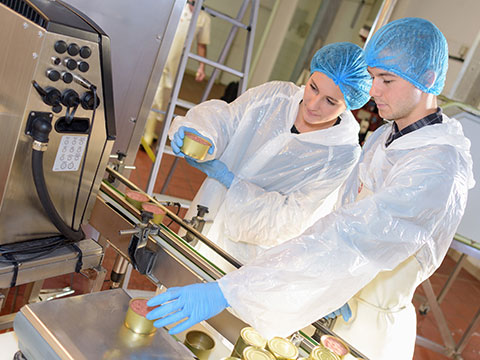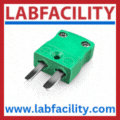
Posted to News on 13th May 2024, 10:30
Upgrade weighing systems for more efficient and error free production
By implementing smart and adaptable weighing technology in plant machines and equipment, Stephen Hayes, managing director of Beckhoff UK, explains why food manufacturers require control automation to increase efficiency and prevent avoidable costs.

From logistics and transportation to food manufacturing and agriculture, weighing technology plays a crucial role. Yet, in the past, these industries relied on manual methodologies and traditional measurement techniques.
Weighing scales, predominantly mechanical in nature, operated through spring or lever mechanisms that required manual adjustments and calibration. Such systems were susceptible to inaccuracies, stemming from factors like friction and wear, with operators carrying out labour intensive practices that made them manually position objects on scales before visually interpreting measurements.
The resulting documentation and record keeping involved paper-based methods, which are not only prone to errors but time consuming too. All of these factors made quality control very challenging, often resulting in discrepancies, delays and increased risk of regulatory non-compliance.
Increased efficiency
These challenges have influenced the advancement of digital weighing technology. In fact, the global industrial weighing equipment market is predicted to expand over 1.7X between now and 2033, due to the increasing demand for automated weighing solutions.
As an advanced technology, these replace the traditional analogue weighing systems, offering accuracy and ease of integration for the food processing industry. In blending operations, for instance, digital weighing systems use digital signals for measurement, allowing for more precise weight readings and optimal mixing performance, even with challenging formulations.
Just look at how system integrator, Taylor Controls, helped a grain blending company to upgrade its existing semi-automated to increase throughput and support more rapid changeovers between recipes. It relied on auger feeders, start-stop motor controls and weigh cells for production, which lacked flexibility for recipe changes, meaning that the existing system was pushed to the brink and exhibited unexpected errors.
Without self-learning capabilities too, the fluctuating material behaviour in the feeder, which is influenced by type, quality and moisture content, ultimately led to deviations in weighments.
Through control technology, the process required each recipe ingredient to be dispensed into a weight scaled vessel individually. The feeder operated at high bulk speed initially before transitioning to low dribble speed near the setpoint for precise weight attainment. In addition, the system also autonomously learns the free fall amount post-dispensing to accommodate fluctuating conditions, ensuring accurate and consistent ingredient measurements.
To achieve this, motor controls were upgraded from simple starters to a variable frequency drive (VFD), which networked with the host programmable logic controller (PLC) via Ethernet, enabling precise speed control.
In cooperation with the PLC, a human-machine interface (HMI) platform was also integrated. Its user friendliness and large graphical space allowed for visuals on batching and mixing status, dry ingredient auger free fall calculations, formula selection and dry ingredient recipe configuration.
Quality control
Accurate weighing is a crucial part of the process within food manufacturing applications. From the initial raw material inspection to the final product shipment, sometimes they span the full process.
Interestingly, they influence how every batch looks and tastes too, with inaccurate weighing of raw ingredients causing food products to be out of specification. And that's before factoring other potential slip ups, like issuing raw materials into a batch that has not passed its quality control checks or incorrectly adding raw materials to a production batch.
All of these mistakes cost money and come at an unwanted price. Unfortunately, there have been several food product recalls because of these types of errors, where a lack of intelligent equipment across processes resulted in severe consequences.
For example, Whole Foods Market recalled more than 30 food products that had undeclared food allergens in 2020. From this, the US Food and Drug Administration (FDA) said that manufacturers should ensure they have controls in place to prevent the unintentional addition of allergens during manufacturing processes.
The good news is that, one, these costs are avoidable, and two, manufacturers can not only prevent them but also increase overall operational efficiency (OOE) too. This comes as McKinsey Digital revealed that digitalising information intensive processes can cut costs by up to 90 per cent and improve turnaround times by several orders of magnitude.
One way to start is by looking at automation, like the TwinCAT 3 Weighing Library (TF3685), which can integrate a scale directly into the PC-based control system to streamline the weighing process and optimises machine efficiency.
Moreover, it also offers features like high-speed signal filtering, automatic measurement triggering, zeroing and taring, which are essential for accurate and efficient weighing in food manufacturing applications.
Elsewhere, EtherCAT and PC-based control technology can also be used to optimise optical food inspection. For example, industrial equipment supplier, ProSpection Solutions, designed the IP69K-rated Low-Density Foreign Material Detection and Removal System for greater accuracy and efficiency in detecting contaminants in food products. By implementing Beckhoff's EtherCAT and PC-based control technologies, the inspection system increased foreign object detection rates up to 500 per cent.
After all, quality control in this industry is money, because errors can have significant financial repercussions. Manufacturers have the means to mitigate the risks of unwanted costs and, therefore, must ensure that they have the necessary controls in place, as advised by the FDA.






